
For our 2024 rankings, the research team at Nursing Schools Almanac collected data on nearly 3,000 nursing schools and campuses throughout the United States. We evaluated each school on three dimensions:
- The institution’s academic prestige and perceived value
- The breadth and depth of nursing programs offered
- Student success, particularly on the NCLEX licensure examination
We then combined these assessments into an overall score and ranked the schools accordingly. For a detailed description of our assessment methodology and dimension weights, please see here.
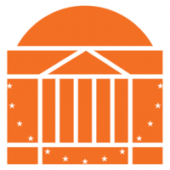
#1: University of Virginia
The University of Virginia School of Nursing was recently ranked among the top four percent of nursing schools in the nation by U.S. News & World Report. The school offers an impressive breadth of program options including prelicensure BSN, RN-to-BSN, seven distinct MSN tracks, two DNP entry points, and a PhD in nursing science. UVA graduates a prelicensure BSN class of approximately 90 students each spring. These candidates have averaged a 91% first-time pass rate on the NCLEX licensure examination over the past decade. UVA’s direct-entry clinical nurse leader students have performed even better on the licensure exam, with a 93% NCLEX pass rate over the past decade. Several recent CNL cohorts have scored a perfect 100% pass rate.
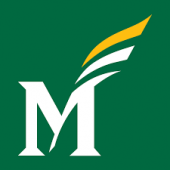
#2: George Mason University
George Mason’s College of Health and Human Services houses the forty-year-old School of Nursing. The school has produced so many successful graduates that one in three nurses practicing in the DC metropolitan area is a GMU alumnus. Baccalaureate pathways include traditional BSN, accelerated second degree BSN, RN-to-BSN, and two co-enrollment programs. Over the past decade, prelicensure BSN students have averaged an 86% first-time pass rate on the NCLEX licensure examination. GMU also offers MSN concentrations for aspiring nurse educators, nurse practitioners, and nursing administrators; an RN-to-MSN bridge program; post-master’s certificates for aspiring nurse educators and family psychiatric-mental health nurse practitioners; and both types of doctoral nursing degrees (DNP and PhD).
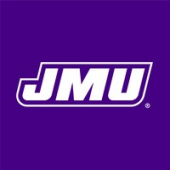
#3: James Madison University
The School of Nursing at James Madison University has a number of unique offerings for nursing students, including international study abroad opportunities in Costa Rica, Spain, Tanzania, and Malta. JMU offers a broad range of nursing programs, from traditional BSN and RN-to-BSN pathways to MSN and DNP degrees. A chronic illness minor is also available. Undergraduates have posted a 94% pass rate on the NCLEX-RN licensure exam over the past decade, including a stellar 98% pass rate in 2020. JMU’s graduate nursing students can pursue concentrations in clinical nurse leader, nurse administrator, nurse midwifery, and three nurse practitioner roles (adult-gerontology primary care, family, psychiatric-mental health).
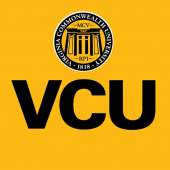
#4: Virginia Commonwealth University
The VCU School of Nursing boasts a state-of-the-art Clinical Learning Center with a skills lab and two intensive care simulation suites. The center was recognized in 2010 as a Laerdal Center of Educational Excellence. VCU also provides nursing students with 45,000 square feet of classrooms, auditoriums, and research laboratories. The university offers three BSN pathways (traditional, accelerated, RN completion), five MSN concentrations, and both doctoral nursing degrees (DNP and PhD). VCU graduates approximately 150 prelicensure BSN students each year, who have passed the NCLEX exam at an impressive 93% first-try rate over the past decade.

#5: Marymount University
The Malek School of Health Professions houses the Marymount University Department of Nursing. Each year, approximately 50 students graduate from the school’s traditional BSN program, while another 80-100 students complete the accelerated BSN program. Across these two pathways, graduates have passed the NCLEX-RN licensure exam at a strong 91% rate over the past decade. Marymount University also offers a hybrid online RN-to-BSN program, an MSN degree with a family nurse practitioner focus, and an online DNP program that requires just one on-campus component per semester. Clinical experiences and internships take place at some of Virginia’s leading healthcare organizations.

#6: Radford University
Radford University’s School of Nursing offers BSN programs across three sites: the main university campus, the Roanoke Higher Education Center, and Carilion Roanoke Community Hospital. The hospital site previously operated as Jefferson College of Health Sciences, the oldest hospital-based college in Virginia. In 2019, Radford University incorporated the college into its own administration to create the new Radford University Carilion. Across these three sites, prelicensure BSN students have collectively posted a 91% first-time pass rate on the NCLEX-RN examination over the past decade. At the graduate level, Radford University offers two MSN concentrations, three DNP concentrations, and a post-master’s certificate for aspiring psychiatric-mental health nurse practitioners. The DNP program is specifically tailored towards rural care scenarios.
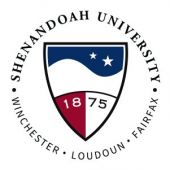
#7: Shenandoah University
Shenandoah University’s Eleanor Wade Custer School of Nursing recently launched a unique volunteer opportunity called Project FIRST (Free Individual Risk Factor Screening & Treatment). The project serves uninsured and underserved members of several local counties, targeting individuals at risk of developing or living with chronic diseases. The university offers a breadth of nursing pathways including a traditional BSN, an accelerated BSN, an RN-to-BSN completion program, a Veteran-to-BSN bridge program, four MSN specializations, the corresponding post-graduate certificates, and a DNP curriculum with both BSN and MSN entry points. Across its two campuses in Winchester and Ashburn, Shenandoah University produces 100-150 prelicensure BSN graduates annually. Over the past decade, these students have achieved a first-time NCLEX-RN pass rate of 88%, including an impressive 97% pass rate in 2020.
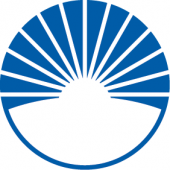
#8: Eastern Mennonite University
Eastern Mennonite University offers both undergraduate and fully online graduate programs in nursing. The undergraduate BSN program offers six different pathways including a traditional four-year curriculum, an entry option for transfer students, two second degree pathways (traditional, accelerated), and two bridge programs (LPN-to-BSN, RN-to-BSN). The university graduates approximately forty prelicensure BSN students each year, with a solid 86% NCLEX pass rate over the past decade. At the graduate level, EMU offers an MSN degree with two concentrations (leadership and management, leadership and school nursing), a school nurse certification program, an MSN/MBA dual degree, and a DNP program that prepares nursing professionals to lead within dynamic healthcare systems.
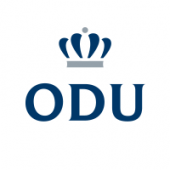
#9: Old Dominion University
The School of Nursing is the largest of five professional schools in ODU’s College of Health Sciences. In addition to BSN, MSN, DNP, and graduate certificate programs, the school offers a unique concurrent enrollment option. This pathway enables qualified students to complete associate of applied science (AAS) requirements, take the NCLEX-RN exam, and then earn the BSN degree with just one or two additional semesters of study. ODU’s prelicensure BSN graduates have consistently earned high marks on the NCLEX-RN exam, with 89% passing on the first attempt over the last decade.
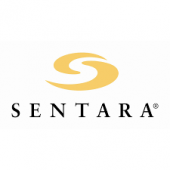
#10: Sentara College of Health Sciences
Sentara College of Health Sciences offers a master’s entry to nursing practice (MENP) pathway, one of only two such programs in the state of Virginia that allow students with a non-nursing baccalaureate degree to enter nursing practice at the master’s degree level. The college also offers two pathways to the BSN degree: a traditional prelicensure program and an RN-to-BSN degree completion program. Since its launch, the traditional BSN has an excellent track record of student success. Graduates have scored a stellar 93% first-time pass rate on the NCLEX licensure exam, including a perfect 100% pass rate in 2018. The 30-credit-hour RN-to-BSN program opened in 2010 and has a current enrollment of around 300 students.
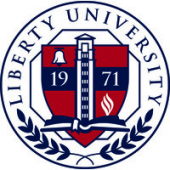
#11: Liberty University
The Liberty University School of Nursing offers an impressive breadth of degree programs. Undergraduate options include a traditional four-year residential BSN, an accelerated BSN for students who either hold a non-nursing bachelor’s degree or have served in the U.S. military, and two online pathways for working nurses (RN-to-BSN, RN-to-BSN-to-MSN). Approximately 200 students graduate annually from the residential BSN program. They have achieved an excellent 94% first-time NCLEX pass rate over the past decade, including a stellar 98% pass rate for the class of 2019. Graduate students can pursue five MSN specializations including community health, health policy, nurse educator, nursing administration, and nursing informatics. Graduate certificates are available in the fields of clinical leadership, nursing educational leadership, and psychiatric-mental health nurse practitioner. LUSON also offers two dual-degree options in the MSN program (MBA, MSHA) and two nurse practitioner roles in the DNP program (family, psychiatric-mental health). Nurse practitioner candidates from both tracks have scored a 100% pass rate on their certification exams since the program’s inception. Finally, the university launched an online nursing PhD program in the fall of 2019 with a focus on nursing education.
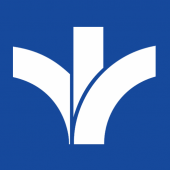
#12: Bon Secours Memorial College of Nursing
Bon Secours Memorial College of Nursing is a private nursing school affiliated with the Catholic, not-for-profit Bon Secours Health System. The college offers two pathways to a BSN degree: a traditional prelicensure program and an RN-to-BSN degree completion program. Traditional BSN students are required to fulfill general education requirements prior to entry, enabling them to complete the core nursing curriculum in just five semesters. Graduates of the traditional pathway have posted a phenomenal 97% first-time pass rate on the NCLEX licensure exam since the program’s inception. They also enjoyed a 94% job placement rate and a 97% retention rate during the 2017-2018 academic year. The RN-to-BSN pathway is designed for working professionals and delivered 100% online for maximum flexibility. Most students take two courses per semester and complete the program in two years; others take just one class at a time and complete the program in four years.
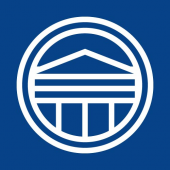
#13: Longwood University
Founded in 1839 as Farmville Female Seminary Association, Longwood University is the third-oldest public university in Virginia and one of the 100 oldest institutions of higher learning in America. Longwood University offers nursing students two pathways to the BSN degree: a traditional prelicensure program and an RN-to-BSN completion program. The school blends classroom theory, applied simulations, and hands-on clinical experiences to immerse its students in the real world of healthcare. Community and service-learning experiences are woven throughout the programs. The traditional prelicensure program graduates a close-knit cohort of 25-40 students annually. These students have averaged a 93% first-time pass rate on the NCLEX licensure exam since the program’s inception. Four of the past five graduating classes have scored a perfect 100% first-time NCLEX pass rate.
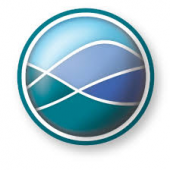
#14: Centra College
Centra Health was the first health system in central Virginia to achieve Magnet designation for nursing excellence from the American Nurses Credentialing Center. The designation was first conferred in 2005 and reaffirmed in 2010, 2015, and 2019. Housed within this system is Centra College. The college offers four educational programs: a nurse aide certificate, a practical nursing certificate, an associate degree in nursing, and an RN-to-BSN completion pathway. All programs emphasize patient-centered care, collaboration within the medical team, and healthcare delivery in the fast-paced modern environment. The LPN program graduates approximately 40 students annually, with an 86% first-time NCLEX-PN pass rate over the past decade. The ADN program graduates 90-120 students annually, with a similarly strong 86% first-time NCLEX-RN pass rate over the past decade.
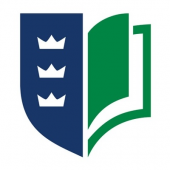
#15: Regent University
Regent University was founded in 1978 by televangelist M.G. “Pat” Robertson. The school serves 11,000 students across more than 150 programs leading to an undergraduate or graduate degree. The nursing programs at Regent University are accredited by the Commission on Collegiate Nursing Education. Students can pursue an RN-to-BSN degree completion pathway or an MSN degree with four specializations. The RN-to-BSN program is 120 credit hours in length, including 45 practice immersion hours in community and public health nursing, health assessment, and nursing leadership and management. Graduates are prepared for advancement opportunities in their current careers. The MSN program offers specializations in nurse educator, nurse leadership and management, adult-gerontology clinical nurse specialist, and psychiatric-mental health nurse practitioner. Graduates are prepared for senior and leadership positions in a broad array of healthcare settings.
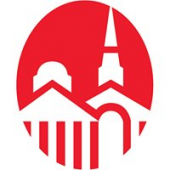
#16: University of Lynchburg
University of Lynchburg was founded in 1903 as Virginia Christian College, with an initial enrollment of 55 students. Today the school serves approximately 3,000 students representing 38 states and 15 foreign countries. The School of Nursing offers two prelicensure pathways: a traditional undergraduate major and an accelerated second degree for individuals with a non-nursing baccalaureate. The BSN curriculum builds upon the university’s liberal arts foundation with nursing coursework and clinical experiences in a range of healthcare settings. Across both pathways, University of Lynchburg graduates approximately 40-50 BSN students annually. These graduates have averaged a 92% first-time pass rate on the NCLEX licensure examination over the past decade, including a stellar 98% first-time pass rate in each of the past three years.
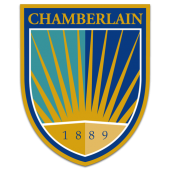
#17: Chamberlain University
Chamberlain University’s Tysons Corner campus offers a prelicensure BSN program with no prerequisites that may be completed in just three years of fulltime study. The university also offers a unique military-to-BSN pathway for students who wish to transition from a military healthcare role to a civilian registered nursing role. Students receive hands-on experience in the Chamberlain SIMCARE Center as well as clinical settings, allowing them to refine their nursing skills while working alongside faculty, mentors, experienced nurses, and peers. More than 100 students graduate from the Tysons Corner prelicensure BSN program each year. These students have averaged an 84% first-time pass rate on the NCLEX licensure examination since the program launched approximately a decade ago.
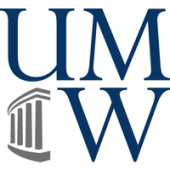
#18: University of Mary Washington
The University of Mary Washington was founded in 1908 as Fredericksburg’s State Normal and Industrial School for Women. Today the school serves a coed population of 4,400 students across more than sixty majors and programs of study. The nursing program is part of the College of Arts and Sciences. The university offers two nursing pathways: an RN-to-BSN completion program conducted both online and on-campus, and a unique 1+2+1 dual degree plan. Dual degree students attend both the University of Mary Washington and Germanna Community College for the first three years; during senior year, students attend only UMW. This competitive program accepts just 15-18 students each fall.
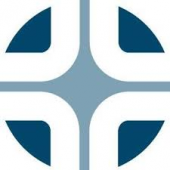
#19: Southside College of Health Sciences
Southside College of Health Sciences traces back its roots in nursing education nearly 125 years. Today the college offers a prelicensure associate degree program in professional nursing. Coursework covers nursing theory, the physical and social sciences, and the role of the nurse as provider and manager of care. The program also incorporates cutting-edge instructional technologies to prepare students for positions in the most advanced healthcare settings, including community agencies, hospitals, long-term care facilities, and physicians’ offices. The college typically graduates between thirty and sixty new nurses annually. Over the past decade, these graduates have averaged a 94% first-time pass rate on the NCLEX licensure examination, including a perfect 100% pass rate in 2016.
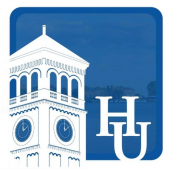
#20: Hampton University
Hampton University is one of the country’s top historically black universities, with students representing 49 states and 35 territories and nations. The School of Nursing is home to the first baccalaureate and oldest continuous nursing program in the Commonwealth of Virginia. Undergraduates can pursue several BSN pathways including traditional prelicensure, accelerated second degree, LPN-to-BSN bridge, and RN-to-BSN degree completion. Students in the school’s prelicensure pathways have scored a 95% first-time pass rate on the NCLEX licensure examination over the past four years. Graduate nursing students can pursue an MSN, DNP, or PhD degree. The DNP program is delivered in a 100% online platform with three campus residency sessions.
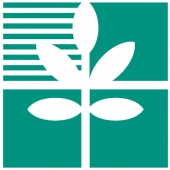
#21: Riverside College of Health Careers
Riverside College of Health Careers offers an AAS degree in professional nursing and a diploma in licensed practical nursing. Both programs feature a traditional day division as well as an evening / weekend division for working students. Through Riverside Medical Group, the school boasts close affiliations with a vast network of hospitals, primary care practices, women’s health practices, and retirement communities. Riverside students perform very well on their licensure tests: over the past decade, the school has posted a 91% first-time pass rate on the NCLEX-RN exam and an 89% first-time pass rate on the NCLEX-PN exam. Recent graduates of the professional nursing program have also enjoyed a 92% or higher job placement rate in the field. Riverside’s concurrent enrollment program with Old Dominion University provides an additional pathway for aspiring RNs who seek a baccalaureate nursing degree.

#22: Mary Baldwin University
Mary Baldwin University was the first college in Virginia to create a program for adult learners to earn their degrees later in life. The school also established one of the first dozen doctoral programs of occupational therapy in the nation. The university’s School of Nursing is part of Murphy Deming College of Health Sciences. Programs are designed to meet the needs of working nurses, with a curriculum delivered 100% online at a flexible pace. Students can pursue an RN-to-BSN completion pathway, a traditional post-baccalaureate MSN, or an accelerated RN-to-BSN-to-MSN track. The MSN degree offers three concentration options: patient safety and healthcare quality, master of healthcare administration (MHA) dual degree, and master of business administration (MBA) dual degree.
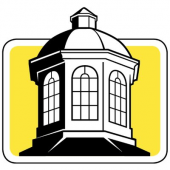
#23: Randolph-Macon College
Randolph-Macon College serves 1,500 students across more than fifty areas of study, including nursing. The college’s prelicensure BSN program offers direct entry as a freshman. Students receive career support through the EDGE program, which offers nurse externship and residency opportunities. The nursing program also boasts a cutting-edge clinical learning center with simulation, health assessment, and skills learning labs. Nursing clinical experiences take place in some of the most reputable healthcare systems in the country. Graduates are prepared to assume the responsibilities of a registered nurse upon successful completion of the NCLEX-RN national licensure examination.
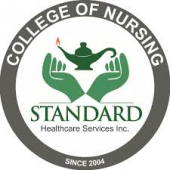
#24: Standard Healthcare Services College of Nursing
Standard Healthcare Services College of Nursing has educated aspiring healthcare professionals for over a decade. In 2007, the school launched its first prelicensure program, a practical nursing diploma. Several years later, Standard College debuted an associate of applied science (AAS) degree in professional nursing, structured as an LPN-to-RN transition program. The LPN diploma currently offers several scheduling options including a 14-month daytime program, a 14-month evening program, and an 18-month weekend program. The AAS degree also follows a 14-month curriculum with two enrollments annually, one in January/February and one in July/August. Standard College’s nursing graduates have consistently performed well on the National Council Licensure Examination. The school boasts an 85% first-time NCLEX-PN pass rate over the past decade and an 86% first-time NCLEX-RN pass rate since the inception of the AAS program.
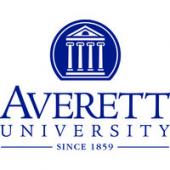
#25: Averett University
Founded 160 years ago as a Baptist women’s college, Averett University now serves a coed population of nearly 1,500 students from 34 states and 20 countries. The School of Nursing offers a traditional prelicensure BSN program, an MSN degree for aspiring family nurse practitioners, and a post-master’s certificate for aspiring emergency nurse practitioners. The university also conducts an online RN-to-BSN program for working nurse professionals through its Graduate and Professional Studies division. Averett’s state-of-the-art simulation lab allows students to practice physical and communication skills in a realistic work environment. Graduates of the traditional BSN pathway have achieved an 86% NCLEX pass rate since the program’s recent launch, including a perfect 100% pass rate for the classes of 2018 and 2019.
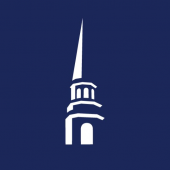
#26: Bluefield University
Bluefield University is a small Christian liberal arts institution. The school’s 1,200-person student body is enrolled in more than seventy academic programs from art to youth ministry. The School of Nursing offers several options for aspiring nurses. At the undergraduate level, Bluefield University has a campus-based four-year prelicensure BSN program and an online RN-to-BSN completion program. The prelicensure BSN program enrolled its first cohort in the 2021 fall semester. Graduate students can pursue an MSN degree with a concentration in family nurse practitioner, leadership/education, or psychiatric-mental health nurse practitioner. The university also offers all three specializations as a post-graduate certificate. The graduate curriculum is delivered in a hybrid format, combining online instruction with onsite clinical practicums that reflect each student’s choice of concentration.
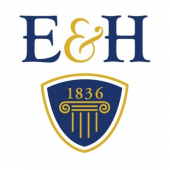
#27: Emory & Henry College
Emory & Henry College serves nearly 1,300 students enrolled in more than ninety majors, minors, and tracks across three schools. The programs at Emory & Henry are hands-on and project-based, with opportunities to gain real-world experience through internships and cooperative work experiences. The School of Nursing offers a traditional prelicensure BSN and an RN-to-BSN bridge program. The traditional BSN consists of 126 credit hours, with 57 credit hours in general education and 69 credit hours in nursing. The RN-to-BSN bridge program is conducted in an online and clinical hybrid format, with fulltime, part-time, and accelerated one-year options. The BSN program at Emory & Henry College is accredited by the Commission on Collegiate Nursing Education.
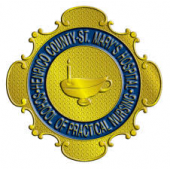
#28: Henrico County / St. Mary’s Hospital School of Practical Nursing
The Henrico County / St. Mary’s Hospital School of Practical Nursing prepares LPNs to provide safe, effective, and culturally competent nursing care across the lifespan. The 18-month program consists of two sections. Practical Nursing I covers anatomy, physiology, pharmacology, and the foundations of nursing. Practical Nursing II covers adult care, family care, mental health care, and nursing leadership. Students in the program enjoy consistently excellent outcomes. Over the past decade, graduates have averaged a 94% first-time pass rate on the NCLEX licensure exam, including a perfect 100% pass rate three out of the past five years. The job placement rate for graduates has also held steady at 100% since 2015.
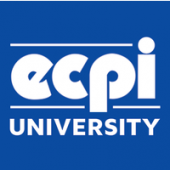
#29: ECPI University
ECPI University graduates more new nurses each year than any other Virginia school. The university’s College of Nursing offers an LPN certificate and an associate degree in nursing at five convenient Virginia locations: Newport News, Northern Virginia, Richmond, Roanoke, and Virginia Beach. Three campuses (Northern Virginia, Richmond, Virginia Beach) also host a prelicensure BSN program, while Newport News conducts an online RN-to-BSN degree completion program. Across its Virginia campuses, ECPI University graduates 300-400 LPN candidates and more than 400 ADN candidates annually. These students have posted an 84% NCLEX-PN pass rate and an 82% NCLEX-RN pass rate, respectively, over the past decade. Graduates from the class of 2020 posted even stronger pass rates: 89% on the NCLEX-PN exam and 87% on the NCLEX-RN exam.
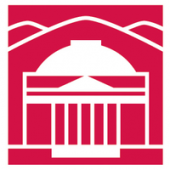
#30: University of Virginia’s College at Wise
The University of Virginia’s College at Wise opened in 1954 on farm property with 109 fulltime students. Two-thirds of those students were Korean War veterans. Today the institution serves more than 2,000 students across 31 majors, 36 minors, and 17 teaching licensures. The College at Wise offers a prelicensure BSN curriculum that requires four years of fulltime study. Students first complete a 64-credit-hour liberal arts and pre-nursing core, followed by formal admission to the 66-credit-hour nursing program. The college graduates a small cohort of approximately twenty BSN students annually. Over the past decade, these students have averaged an 89% first-time pass rate on the NCLEX-RN national licensure examination.
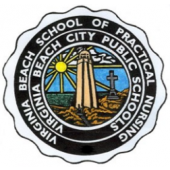
#31: Virginia Beach School of Practical Nursing
Virginia Beach School of Practical Nursing offers an 18-month LPN curriculum that provides students the opportunity to earn CNA certification after the first nine months. Students learn in the school’s state-of-the-art laboratory and conduct clinical experiences at local hospitals. The highly competitive program graduates a small cohort of 12-15 students annually. Over the past decade, these graduates have scored an amazing 99% first-time pass rate on the NCLEX-PN licensure examination, including eight consecutive years with a perfect pass rate.
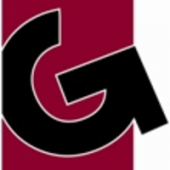
#32: Germanna Community College
Germanna Community College is a member of the 23-campus Virginia Community College System. The school offers degree and certificate programs in a wide range of areas including business, health sciences, and STEM. Within the health sciences discipline, Germanna Community College offers an LPN certificate program and two ADN pathways (traditional and LPN-to-RN). After passing the NCLEX-PN licensure examination, LPN graduates may enroll in the college’s surgical nurse scrub certificate program. This credential qualifies LPNs to work in higher-level positions within operating rooms, labor and delivery rooms, ambulatory centers, laboratories, private offices, and anywhere else invasive procedures are performed. Across the college’s nursing programs, graduates are well prepared for their licensure exams. Over the past decade, LPN students have averaged an 85% first-time NCLEX-PN pass rate, while ADN students have achieved an impressive 92% first-time NCLEX-RN pass rate.
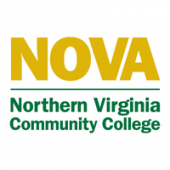
#33: Northern Virginia Community College
Northern Virginia Community College is one of 23 colleges within the Virginia Community College System. NOVA offers a fulltime five-semester associate degree in nursing. First-semester students take prerequisite coursework, followed by four semesters of nursing coursework. The curriculum covers a breadth of critical nursing concepts including developmental psychology, human anatomy, health promotion, microbiology, and intercultural communication. Students enjoy access to a dedicated nursing lab and a state-of-the-art simulation lab at NOVA’s Medical Education Campus in Springfield. The ADN program graduates 100-150 students annually. These students hold an impressive 88% first-time pass rate on the NCLEX-RN licensure examination over the past decade.
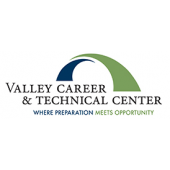
#34: Valley Career & Technical Center
Valley Career & Technical Center dates back to the late 1950s, when it was known as Woodrow Wilson Technical School. The center offers programs for both adults and upper-level high school students. VCTC’s 18-month practical nursing diploma is geared toward adult students, while high school juniors and seniors may enroll in the 12-month CNA certificate program. Both programs incorporate clinical training at area hospitals and long-term care facilities, such as Augusta Health and Shenandoah Nursing and Rehabilitation. Graduates are prepared to sit for their respective licensure or certification exams. Valley Career & Technical Center graduates roughly a dozen students from the LPN program each year. These graduates have scored a phenomenal 96% first-time pass rate on the NCLEX-PN licensure exam over the past decade.
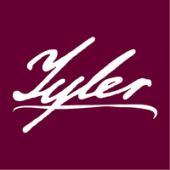
#35: John Tyler Community College
John Tyler Community College serves more than 13,000 students and 6,000 adult learners annually. The college offers 75 majors and holds guaranteed admission agreements with 35 four-year colleges and universities. As a result, ADN graduates can seamlessly transfer to a BSN program at a top university. John Tyler Community College’s ADN program is fully accredited, with traditional and hybrid distance education tracks. Clinical experiences for both tracks are conducted face-to-face at local hospitals and healthcare facilities. Approximately 100 students graduate annually across both ADN tracks. Over the past decade, they have scored an excellent 94% first-time pass rate on the NCLEX licensure exam.
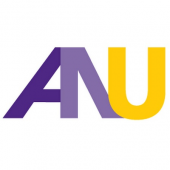
#36: American National University
American National University has an RN-to-BSN program that is accredited by the Commission on Collegiate Nursing Education. Delivered 100% online, the program is designed for registered nurses who already possess an associate degree from an accredited institution. Students can enter the program with immediate junior-level standing if transfer credits include college-level lab-based courses in anatomy, college algebra, microbiology, and physiology. Otherwise, students will have to complete these prerequisites prior to enrolling in the BSN program. Courses are delivered through ANU eUniversity, which utilizes advanced technology for a fully interactive experience. Any healthcare student can add a skill credential. Examples include phlebotomy and EKG technician, which prepare students for the respective national certification exams.
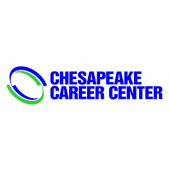
#37: Chesapeake Career Center
Established in 1967, Chesapeake Career Center is the oldest technical and career school in the Commonwealth. The center serves all seven high schools in Chesapeake with programs ranging from cosmetology to healthcare. The practical nursing program begins in the student’s senior year of high school. After completing the first two semesters, the student earns three high school credits and progresses to more advanced coursework on growth and development, medical-surgical nursing, and drug therapies. Graduates earn a practical nursing diploma as well as 16 credits towards the RN degree at Tidewater Community College or Norfolk State University. Chesapeake Career Center graduates a select cohort of 5-10 LPN students annually. They are very well prepared for the NCLEX-PN licensure exam, boasting a 92% first-time pass rate over the past decade.
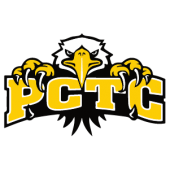
#38: Page County Technical Center
Page County Technical Center provides career training programs that run the gamut from automotive and cosmetology to health sciences and welding. Within health sciences, Page County offers a 1,470-hour practical nursing program that takes 18 months to complete. Forty-eight clinical hours are required in the first year, and 515 clinical hours must be completed in year two. Students complete their clinicals at leading healthcare sites like Western State Hospital, Page Free Clinic, and Shenandoah Women’s Healthcare. First-year students take courses on nursing foundations, adult medical-surgical nursing, and pharmacology, while second-year students take courses on medication administration, leadership, and nursing management. Page County Technical Center graduates a small cohort of 5-10 practical nursing students annually, who are very well qualified to take the NCLEX-PN licensure exam. These graduates hold an impressive 92% first-time NCLEX pass rate over the past decade.
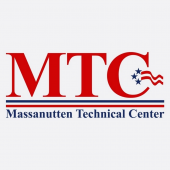
#39: Massanutten Technical Center
Massanutten Technical Center offers career and technical education to high school and adult students in Harrisonburg City and Rockingham County. The practical nursing program is designed for high school seniors and adults. LPN students begin by completing preclinical instruction, which includes basic nursing skills, anatomy, nutrition, pharmacology, and medication administration. The next 36-week phase of instruction requires 15 hours per week of classwork and 14 hours per week of nursing care to clients in acute care and long-term care settings. Upon completion of the program, graduates are eligible to sit for the NCLEX-PN licensure examination. Massanutten Technical Center graduates 20-30 LPN students each year, with a strong 91% first-time NCLEX pass rate over the past decade.
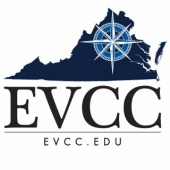
#40: Eastern Virginia Career College
Eastern Virginia Career College is the region’s first career college dedicated to adult career education. The school launched a traditional ADN program in 2008, and it has since added an LPN certificate and an LPN-to-ADN bridge pathway. The LPN program requires 45 weeks of fulltime study, while the ADN program requires 46 weeks of study after general education prerequisites are completed. The timing of LPN-to-ADN completion depends on the number of accepted transfer credits. Graduates of the EVCC nursing programs are prepared to sit for their respective NCLEX licensure examinations. Over the past decade, LPN graduates have achieved an impressive 92% first-time NCLEX-PN pass rate, while their ADN counterparts have averaged an 84% first-time NCLEX-RN pass rate.
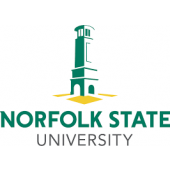
#41: Norfolk State University
The College of Science, Engineering and Technology at Norfolk State University houses the Department of Nursing and Allied Health, which has been in existence for more than sixty years. The department offers both a prelicensure BSN and an online RN-to-BSN program. During their studies, prelicensure BSN students can spend 6-12 hours per day in the simulation lab and at healthcare facilities such as Chesapeake Regional Medical Center, Children’s Hospital of The King’s Daughters, and Hampton VA Medical Center. Many students are offered fulltime positions at these facilities after graduating and passing the NCLEX-RN licensure exam. Norfolk State University graduates approximately 25 prelicensure BSN students each year, with an 84% first-time NCLEX pass rate over the past decade. The university’s RN-to-BSN program is designed for diploma- or ADN-prepared registered nurses. Graduates are qualified to seek higher-level positions in a broad range of healthcare environments.
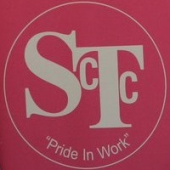
#42: Smyth Career & Technology Center
Smyth Career & Technology Center provides career training in areas ranging from culinary arts and cybersecurity to machine technology and nursing. The school conducts a nurse aide program that prepares students to care for patients in nursing homes, hospitals, and home healthcare. Graduates are eligible to sit for the Virginia Nurse Aide Competency Test to obtain certification. Smyth Career & Technology Center also offers an LPN certificate that combines coursework and simulation lab experiences with clinical rotations at local healthcare centers. This program graduates roughly a dozen students annually, with impressive outcomes. LPN graduates have averaged a 90% first-time NCLEX pass rate over the past decade, with several recent classes scoring a perfect 100% pass rate.
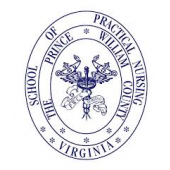
#43: Prince William County School of Practical Nursing
Prince William County School of Practical Nursing caters to both high school seniors and adults with a high school diploma or GED. The 18-month LPN program includes 400 hours of direct patient care at clinical sites like Sentara Northern Virginia Medical Center, Birmingham Green, Westminster at Lakeridge, and Fort Belvoir Community Hospital. Clinical experiences can range from 6-10 hours per day. The LPN curriculum consists of 12 courses including anatomy and physiology, fundamentals of nursing, and leadership / preceptorship. Prince William County School of Practical Nursing graduates approximately 25 students each year. Over the past decade, they have averaged a solid 89% first-time NCLEX pass rate. Graduates may seek practical nursing employment at hospitals, nursing homes, clinics, and physician’s offices.
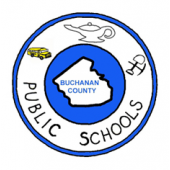
#44: Buchanan County Career, Technology & Higher Learning Center
Buchanan County Career, Technology & Higher Learning Center has provided education and career training programs to high school students and adult learners for more than fifty years. The school has a practical nursing program that prepares 10-20 students annually to sit for the NCLEX-PN licensure exam. Over the past decade, these LPN graduates have achieved an 88% first-time NCLEX pass rate. Coursework covers anatomy, clinical laboratory techniques, early childhood development, infection control procedures, medical terminology, nutrition, and pharmacology. Students receive valuable hands-on experience in simulation labs and during clinical rotations at local hospitals and healthcare centers. The LPN program awards a certificate upon successful completion. BCCTHLC graduates can pursue entry-level positions in hospitals, nursing homes, clinics, physician’s offices, and home healthcare settings.
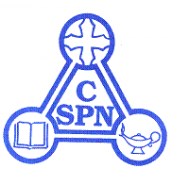
#45: Central School of Practical Nursing
The Central School of Practical Nursing at Norfolk Technical Center is approved by the Virginia Board of Nursing and accredited by the Accreditation Commission for Education in Nursing. This LPN program covers two nine-month periods. Level I, the first nine months, allows the student to take the test to become a certified nursing assistant after 368.5 hours of nursing theory and 126.5 clinical hours. Level II, the second nine months, requires an additional 498 hours of nursing theory and 499 clinical hours. Upon completion of the entire program, graduates are eligible to sit for the NCLEX-PN licensure examination. The Central School of Practical Nursing graduates a small cohort of 10-20 LPN students annually. These graduates have maintained a perfect 100% first-time NCLEX pass rate every year since 2018.
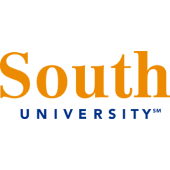
#46: South University
South University is a private, fully accredited institution that provides nursing programs across ten physical campus locations and a robust online platform. The university’s Richmond and Virginia Beach campuses offer two BSN pathways (prelicensure and RN-to-BSN) as well as an MSN degree with a family nurse practitioner focus. Students can also earn the FNP qualification as a post-graduate certificate. South University students enjoy small class sizes, clinical experiences at top healthcare centers, and flexible learning formats including on-campus, virtual instruction, and online courses. Upon completion of the prelicensure BSN program, graduates are eligible to sit for the NCLEX-RN licensure examination. Since the program’s inception, Virginia Beach graduates have averaged a 76% first-time NCLEX pass rate, while their Richmond counterparts have posted an impressive 93% first-time NCLEX pass rate.
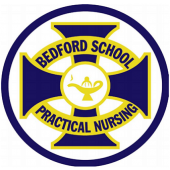
#47: Bedford County School of Practical Nursing
The Susie G. Gibson LPN Program at Bedford County School of Practical Nursing is a unique 18-month pathway that begins in the student’s senior year of high school. During the first nine months, courses are delivered at Bedford Science and Technology Center. The next nine months consist of classroom and clinical work experience at Centra Bedford Memorial Hospital, where students care for emergency, geriatric, mental health, newborn, obstetric, pediatric, primary care, and surgical patients. The program prepares roughly a dozen graduates annually to sit for the NCLEX-PN licensure examination. Over the past decade, these students have averaged an 86% first-time NCLEX pass rate.
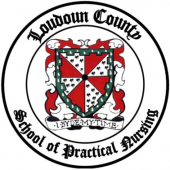
#48: Loudoun County School of Practical Nursing
Loudoun County School of Practical Nursing offers a two-year certificate program that is held at the Adult Education Learning Center in Leesburg. The LPN curriculum covers nursing skills and fundamentals, geriatric nursing, medical-surgical nursing, mental health nursing, and nursing leadership. On campus, practical nursing students engage in immersive simulation lab experiences. Off campus, they conduct hands-on clinical experiences. In year one, students complete 40 hours of clinical rotations at long-term care facilities; in year two, they complete 400 clinical hours at hospitals, community clinics, physician’s offices, and schools. Loudoun County School of Practical Nursing graduates a select group of 5-10 students annually. Over the past decade, these graduates have averaged an 84% first-time pass rate on the NCLEX-PN licensure exam.
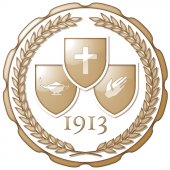
#49: Ferrum College
Ferrum College is a private liberal arts college affiliated with the United Methodist Church. Founded more than 100 years ago, the school is now home to one of nation’s newest nursing programs. The college launched a Division of Nursing in 2020 which offers both a traditional prelicensure BSN and an RN-to-BSN completion program. The traditional BSN is a residential program that takes four years to complete. The curriculum combines general education and nursing courses with 630 clinical hours, including rotations at area hospitals and healthcare facilities. Traditional BSN graduates are prepared to sit for the NCLEX-RN licensure examination. The RN-to-BSN pathway is designed for professional RNs with an unencumbered license. The program is conducted 100% online with fall, spring, and summer sessions. Coursework covers advanced healthcare topics like professional nursing practice, informatics, data management, and nursing leadership.
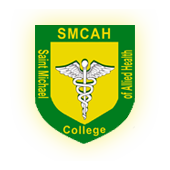
#50: Saint Michael College of Allied Health
Saint Michael College of Allied Health conducts LPN and ADN programs that are open to applicants 18 years and older who have graduated from an accredited high school or have obtained their GED. The LPN program covers nursing foundations, informatics, nursing technology, and chronic care management for vulnerable and underserved populations. Graduates are prepared to sit for the NCLEX-PN licensure exam. The ADN program prepares students for positions in acute, chronic, ambulatory, and home healthcare settings. Graduates are prepared to sit for the NCLEX-RN licensure exam. The ADN program graduates between five and 15 students annually, and it boasts impressive outcomes. For example, ADN students hold a 90% employment rate within 6-12 months of graduation. They have also achieved an 87% first-time NCLEX pass rate over the past decade.
